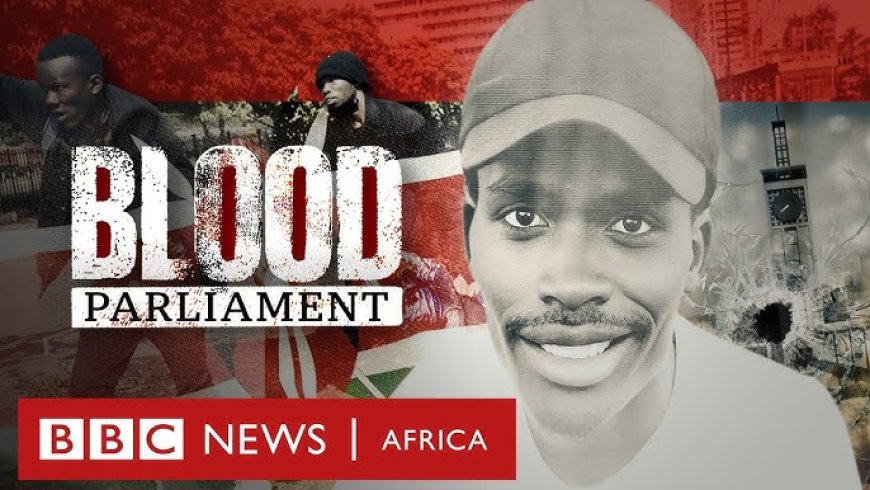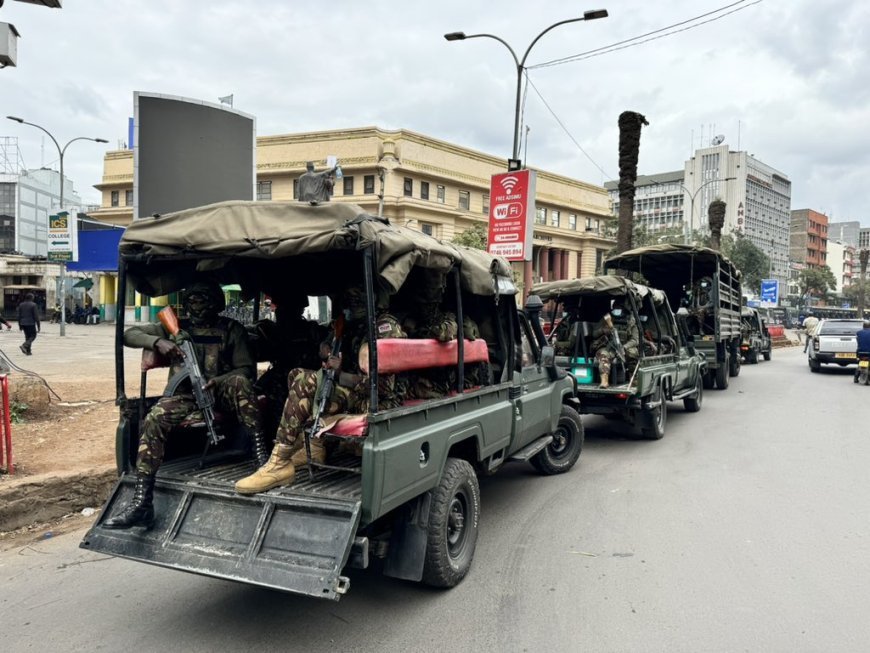Govt Pressure? BBC Forced To Cancel Screening Of 'Blood Parliament' Documentary
The screening was cancelled just hours before guests were expected to arrive at the venue.

The British Broadcasting Corporation (BBC) on Monday, April 28, cancelled a private screening of 'Blood Parliament' that had been organised in Nairobi by BBC Africa Eye. The documentary uncovered little-known details of the brutality meted out by authorities during anti-tax protests at the Kenyan Parliament in June 2024.
The screening was cancelled just hours before guests were expected to arrive at the venue. The media agency announced it was "no longer able to proceed," even though the documentary, released earlier on April 28, 2025, had already attracted significant viewership, clocking over 2 million views on YouTube by the time of publishing this article.
The British state broadcaster indicated that they were working to find an alternative solution. "Unfortunately, we are no longer able to proceed with the screening tonight. We are very disappointed not to be able to share the documentary with our guests as planned," a cancellation email sent to guests hours before the screening read in part.

Kenyans participating in the June 25 protests on June 25, 2024. /DW
"However, we are working to explore alternative options and will be in touch accordingly if an alternative solution is found."
Initial media reports alleged that the cancellation was due to pressure from Kenyan authorities. Though sources hinted to Viral Tea that it could have been a possibility, they revealed that the screening was cancelled for security reasons.
Per an advert seen by Viral Tea, the event, which was to take place from noon, was to feature a panel discussion after the screening of the documentary, which dug deep into the hour-long window that took place during 'Occupy Parliament'.
Before the cancellation, organisers had announced that the event was fully booked and had urged members of the press to limit bulky video equipment due to space constraints.
The documentary alleged that, other than the police officers tasked with maintaining law and order, other shooters, likely from the Kenya Defence Forces (KDF) — the Kenya Army in particular — were also involved in the Gen Z protests.
The BBC stated that it tracked the killing of dozens of Kenyan youths through digital evidence. One major detail they pointed out was that one shooter during the Parliament chaos was dressed differently from all the plainclothes cops, hinting he might not have been part of the police forces.
It was alleged that one of the shooters involved in the parliamentary incident was an officer later linked to the Central Police Station in Nairobi. However, attempts to locate the officer at the station were unsuccessful, raising concerns about his actual deployment and assignment.
The piece also exposed a KDF soldier who fired at protesters from inside the Parliament grounds, where one of the protesters, Eric Shieni, was shot and killed, and a plainclothes police officer, John Kaboi, who encouraged riot police to open fire with live ammunition on protesters outside Parliament, leading to the deaths of David Chege and Ericsson Mutisya.
Efforts to obtain comments from both the National Police Service (NPS) and the Central Police Station regarding the officer’s conduct were also unsuccessful. The NPS stated that investigations into police conduct fall exclusively under the mandate of the Independent Policing Oversight Authority (IPOA) and emphasised that it could not investigate itself.
In response to allegations that KDF officers were involved in the shootings, the KDF denied the claims, maintaining that it is a professional and neutral institution.
The Independent Policing Oversight Authority (IPOA), in response to the exposé, revealed that it initiated multiple investigations following violent confrontations between protesters and law enforcement.
According to IPOA, out of the 60 reported deaths, 22 investigations have been completed, while 36 remain ongoing. The authority also confirmed that two cases have already been filed in court.







